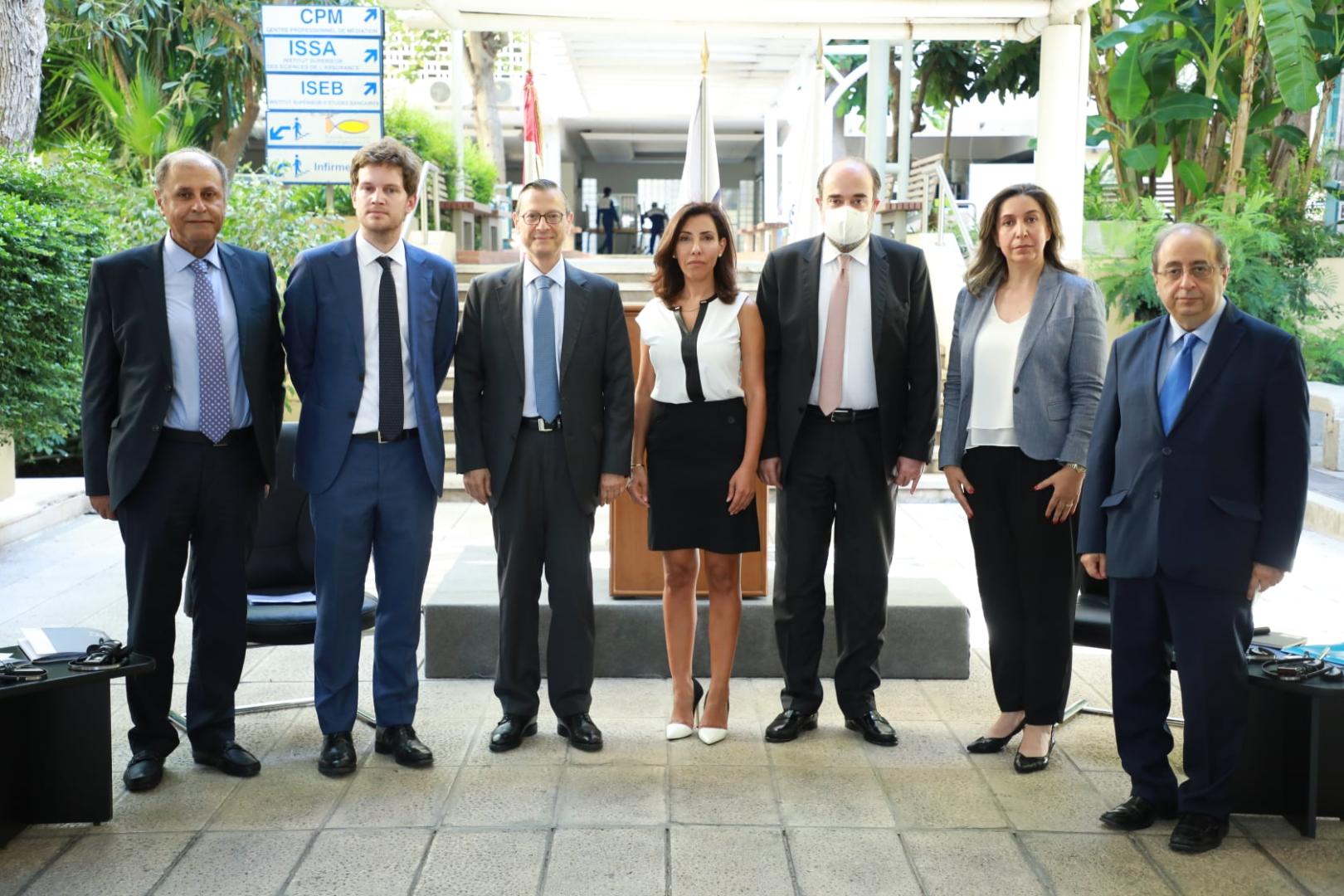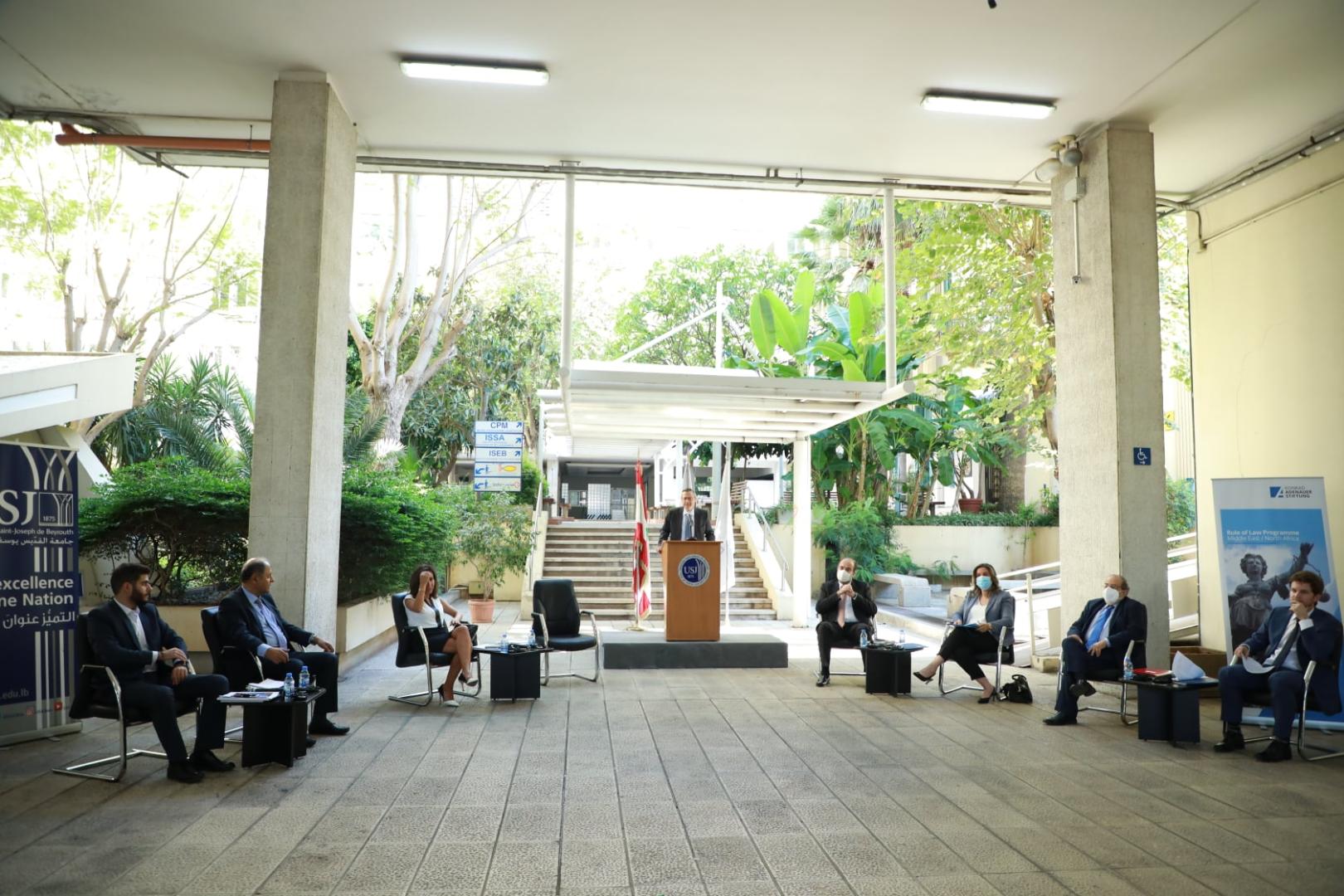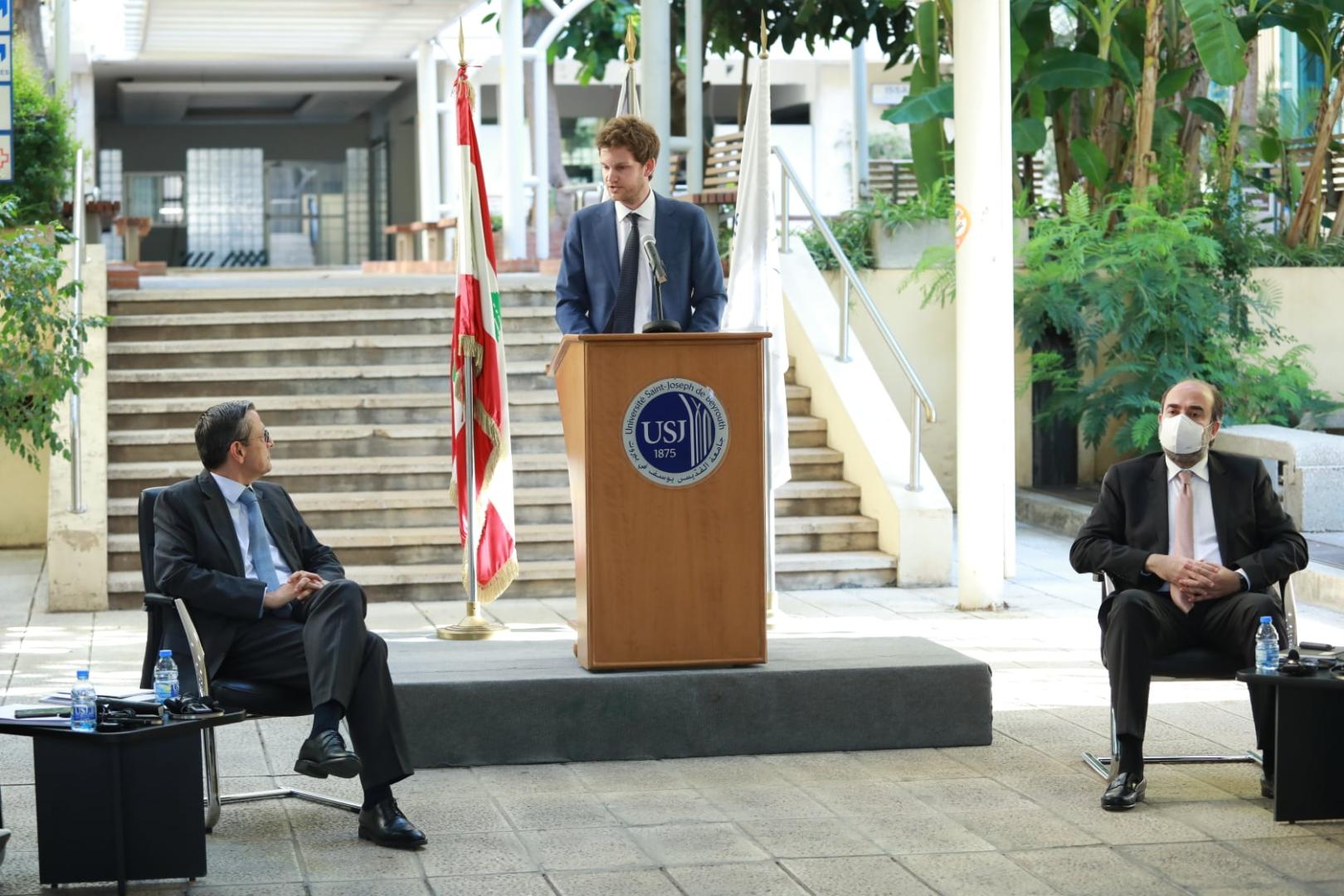The Right of Access to Information Law: A Step Toward Good Governance
This symposium was hosted and moderated by Prof. Pascal Monin of the Observatoire, with the participation of five panellists. Mr. Philipp Bremer, the new Director of the Rule of Law Program, held the opening remarks.
In these opening remarks Mr. Bremer welcomed the panellists and guests and introduced them to the Konrad-Adenauer-Stiftung, its program as well as the topic of the symposium. In regards to the Right of Access to Information Law he noted, “Lebanon has signed the UNCAC (United nations Convention Against Corruption). It is therefore required to implement the right to access to information”. He added that “a stronger implementation would benefit the country”. “With the recurring crisis in Lebanon the need for the application of this law is one of the priorities to ensure state transparency and accountability in order to prevent corruption”.
In his following opening remarks Prof. Monin pointed out that “everyone knows that the freedom of access to information in Lebanon has historically been restricted by some legal texts and practices that expanded exceptions and prohibitions under elastic headings, including the protection of national security, the public interest, and the preservation of private life”. He added: “today, with the promulgation of the Right to Information Law, we are entering a new era, and the biggest challenge is to implement this law and not to create fictional boundaries”.
Afterwards the expert remarks were as following:
1) Mr. Georges Okais
2) Mr. Ghassan Moukheiber
3) Judge Dora El Khazen
4) Dr. Halima El Kaakour and
5) Dr. Charbel Maroun.
In his speech, Mr. Georges Okais shed light on the importance of the amendments to the Right of Access to Information Law. He also referred to a study prepared by the “Gherbal initiative” that shows that only 34 out of 133 official administrations responded in 2017/2018 to official requests for information based on this law. This would mean in a sense that “74 percent of all public administrations in Lebanon deliberately refrained from implementing the law”.
MP Okais went on stating that “on September 27, 2019, two and a half years after the law was promulgated, Human Rights Watch issued a report in which it indicated that since the law was issued, it had submitted 72 requests for information from various state courts and institutions, only 18 government agencies responded to its request and only 10 were returned on time. Which means that the state is not giving any importance, not just to “Gherbal” but also to the work of an organization as important as Human Rights Watch, which is a shame”.
Former MP Mr. Ghassan Moukheiber spoke about the stages the law had gone through, since it was presented by a group of activists in 2006 and finally passed in parliament in 2017. He also spoke about the recent approval of amendments to the law. He said: “The discussion of the Right to Access to Information Law today may seem trivial compared to the collapse that is currently taking place in the economy and in other fields, but one of the reasons for this collapse is the lack of enforcement of laws, this is why our conversation is rather important because the idea of the state is currently absent”. He stressed that “people must use the right that was given to them, otherwise they will lose it. In Lebanon we wouldn’t have reached such a deteriorate situation if each citizen was aware of his rights and was using them, because the resignation of an individual from his duties as a citizen will eventually lead to the collapse of the state and that is what has happened in our country”.
As for Judge Dora El Khazen, she explained in detail the effects of the law and the obstacles it encounters. She listed the loopholes “that still exist and that impede the implementation of the law as it should be”. She said: “one of the effects of this law is that it forces the administration to publish on its websites all the information related to activities and operations it has conducted, but a fast search shows that most of the websites are free from publications”.
Financial Attorney General El Khazen revealed that “the law on the right to access to information included exceptions and specified documents and information that could not be accessed and viewed”, stressing that “the Lebanese authorities have not, to a large extent, committed to implementing the law on the right to access information”. She further pointed out that “any administrative reform needs a political reform prior to it and not the other way round. In order to fulfil such a goal a decent political leadership is required”.
Prof. Halima El-Kaakour addressed the role of the Right of Access to Information Law in promoting democracy and citizenship. She said: “the crisis we are experiencing is due to a crisis of democracy, citizenship and the state”, stressing that “the time has come to replace the current behaviour with a new behaviour that is compatible with building the state and not building leaders”. She considered that “the right to access information is a human right, and it is a cornerstone for other freedoms and other rights. And that without knowledge no plan of action can be put on track”.
Prof. Halima gave the example of Morocco where a partnership of the public and private sector was made concerning the evaluation of government policies and that such a collaboration is consecrated in the Moroccan constitution also. With this example she underlined that “state institutions are here to serve the citizen and citizenship, and that today our society needs some reforms that should be addressed with a new social contract”.
Finally, Dr. Charbel Maroun spoke from a media perspective about the importance of accessing information, presenting his experience in the media field and the difficulties that any journalist faces in his work to reach accurate information.
As a journalist, Dr. Maroun presented the most prominent points of the law, and stated that “we will have less fake news and less unverified resources. Information is no longer a state secret hidden from anyone, but in the contrary, it is public information that should be published transparently, this way a public opinion will be forged. The participation in evaluating public affairs is an obvious necessity”. At the end he added that the country also needs a law “that regulates digital and electronic media”.
The symposium was concluded with a small discussion between the experts and questions asked by the public, attending over zoom.
If you missed the event, you can watch it in the embedded video above.
About this series
The Konrad-Adenauer-Stiftung, its educational institutions, centres and foreign offices, offer several thousand events on various subjects each year. We provide up to date and exclusive reports on selected conferences, events and symposia at www.kas.de. In addition to a summary of the contents, you can also find additional material such as pictures, speeches, videos or audio clips.





